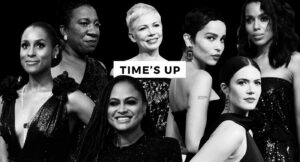Lessons from #MeToo and Harvey Weinstein

By now we’ve all breathed a sigh of relief at the recent news that movie mogul and serial molester, Harvey Weinstein, has been arrested… and recovered from the disappointment of learning he was promptly released on a bail charge. We’ll also have heard about Benjamin Brafman’s legal defence: his client, he insists, ‘didn’t invent the casting couch.’ Hardly a perceptive observation. The concept of the casting couch is as old as Hollywood itself. But every industry is implicated in this post-Weinstein reckoning, as the viral hashtags #Timesup and #MeToo have demonstrated. We simply cannot pretend that Weinstein is not a manifestation of deeper societal problems; just as Hollywood deals with the dark secrets of Harvey, we’ll have to deal with the fact that this is not some far away issue that us non-listers can ignore. The fight against sexual harassment dovetails with the ongoing fight to create more, and richer, places for women in overwhelmingly male industries.
Consider this: according to Forbes, women comprised just 7 percent of all directors working on the top 250 domestic grossing films in 2016. In films with female directors, women comprised 64 percent of writers. On films with exclusively male directors, women accounted for just 9 percent of writers. And Hollywood is analogous to other industries – technology, for instance, where women hold less than 10% of executive positions, or Finance, where fewer than 10% of fund managers are women. Colleagues of mine have since commented on the theatre companies and broadcasters taking positive steps to bring about diversity, but there is still so much to be done.
The world – at least the good guys – is beginning to realise that the under-representation of women is not only unfair, it can have more insidious consequences. As Dacher Keltner, professor of psychology at University of California Berkeley explains, “when you have a concentration of a certain type of person… you’re more likely to get an abuse of power against another group – like young women.” With men making the majority of behind-the-scene decisions, the “casting couch” culture – expecting sex in exchange for career advancement – not to mention the gendered prejudices it perpetuates, is not Hollywood-specific. That is to say, diversity (or lack thereof) among senior stakeholders can have a knock-on effect on the likelihood of workplace sexual harassment. It should come as no surprise then that a BBC survey recently found that half of all women, and one fifth of men, have been sexually harassed at place of work or study.
Beyond leveling the playing field, it is down to company management to ensure that all members of their organisation are equipped with the means to deal with ‘Harvey Weinsteins’ in the workplace. It’s a shame it took the revelations of Weinstein’s true self to make Hollywood a more equal place, but his ultimate downfall constitutes inducement for change, something that will only be as effective as the individuals tasked with driving it through. If members of an existing hiring structure are unwilling to prioritise the need for diversity, consider how that unwillingness is affecting the company’s ability to move forward and succeed in the marketplace in terms of talent recruitment and retention. The best organisations invariably make use of all the talents available to them.
Photos by Mario Anzuoni/Reuters and Valerie Macon/AFP/Getty
Martin Tripp Associates is a London-based executive search consultancy. While we are best-known for our work in the TMT (technology, media, and telecoms) space, we have also worked with some of the world’s biggest brands on challenging senior positions. Feel free to contact us to discuss any of the issues raised in this blog.